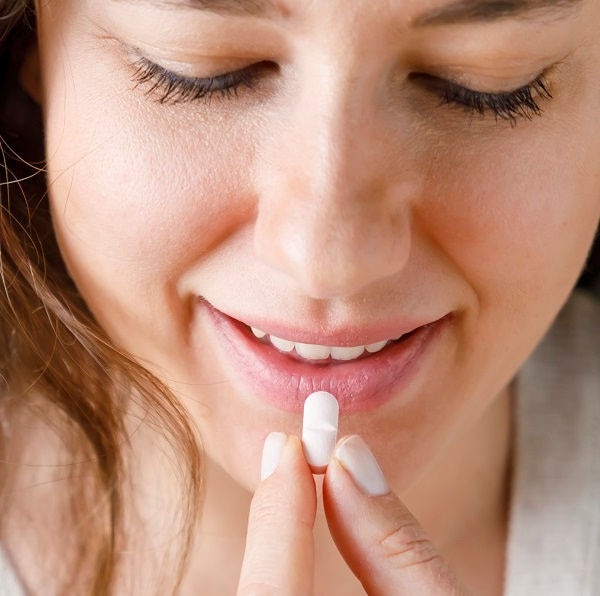News
November 13, 2020
Exploring the Latest Science Behind Vitamin-D, COVID-19 and Immune Health
Discover the potential implications of a new study from Medical Informatics and Boston University School of Medicine on the association between vitamin D and SARS-CoV-2 positivity, and find out how vitamin D may help to lower the risk of COVID-19.

Vitamin D, COVID-19 and immune health – what does the science say?
- A recent paper issued by Medical Informatics and Boston University School of Medicine has shown a strong inverse correlation between SARS-CoV-2 (the virus that causes COVID-19) positivity rates and circulating vitamin D levels in a research cohort of over 190,000 US patients.
- We explore the findings of the study and get an expert perspective on the research from Dr. Adrian Gombart, Professor of Biochemistry and Biophysics, and Principal Investigator at the Linus Pauling Institute of Oregon State University, whose research specializes on understanding how vitamin D impacts immunity.
- Read on to discover how vitamin D may help to lower the risk of COVID-19, the potential implications of the study, and where further research is required to explore the role of vitamin D supplementation in reducing the risk of infection.
Why has there been increased focus on vitamin D and COVID-19?
From the start of the pandemic to the present day, science on vitamin D and COVID-19 has been rapidly evolving, with over 40 patient studies exploring the link between vitamin D levels and diagnosis of the disease.1
Vitamin D is well-known to play several roles in supporting both the innate and adaptive immune systems and reducing the risk of contracting respiratory tract infections.2 For example, it helps to support the growth, maturation and activity of immune cells that are involved in recognizing and killing pathogens , to modulate the production of both proinflammatory and anti-inflammatory cytokines and thus the inflammatory response, as well as promoting cathelicidin synthesis in epithelial and immune cells – an antimicrobial peptide which is believed to help reduce susceptibility to pathogens including in the lungs.3,4,5,6
What has the new study found?
The research article, titled ‘SARS-CoV-2 positivity rates associated with circulating 25-hydroxyvitamin D levels’ and published in September 2020, has revealed an association between lower test positivity rates and higher circulating vitamin D levels.
Dr. Gombart explained: “The study in US patients by Kaufman et al., (2020) evaluated the association of circulating 25-hydroxyvitamin D [25(OH)D] levels with SARS-CoV-2 positive test results. The researchers used the most recent serum 25(OH)D test during the preceding 12 months available for each patient. After analyzing results from 191,779 patients from all 50 states, the research team found SARS-CoV-2 positivity was strongly and inversely associated with circulating 25(OH)D levels. What’s more, this association persisted across latitudes, races/ethnicities, sexes and age ranges.”
In the study, positive SARS-CoV-2 tests were found in 12.5% of those with deficient vitamin D status (<20 ng/ml), in 8.1% of patients with adequate status (30-34 ng/ml), and only 5.9% of patients with higher vitamin D status (>55 ng/ml). In other words, patients with deficient vitamin D status were shown to have a 54% higher positivity rate than those who had an adequate vitamin D status.
Ultimately, the results highlight an inverse relationship between circulating vitamin D levels and SARS-CoV-2 positivity.
What does this mean for the link between vitamin D in reduced risk of SARS-CoV-2 infection?
While previous research has shown similar findings around the link between vitamin D and COVID-19 test positivity rates, the study from Kaufman et al. is unique in the size of its research cohort, which – at over 190,000 patients - is significantly larger than previous studies.
Commenting on the implications of the paper, Dr. Gombart said: “The new study shows that low 25(OH)D serum levels are associated with a higher risk of SARS-CoV-2 infection, while increasing levels are associated with a decreasing risk of infection. The study also showed increased risk for SARS-CoV-2 infection in Hispanic and black non-Hispanic communities who suffer from higher rates of vitamin D insufficiency.”
So, what does this mean for the future of vitamin D in relation to SARS-CoV-2 infection? According to Dr. Gombart, “It is important to note that the relationship described in this study is not causative. In other words, it does not demonstrate that vitamin D supplementation reduces risk of infection but provides a strong rationale to address this question with additional research.”
“As we wait for the results of randomized controlled intervention trials to confirm a causative relationship, responsible supplementation for those with deficiency or inadequate serum 25(OH)D levels (<20 ng/ml) to raise their serum levels to >30 ng/ml is recommended. In the paper itself, Kaufman et al. recommend following advice from physicians in accordance with existing Endocrine Society Guidelines.”
What is the evidence supporting the link between vitamin D and lower risk of COVID-19?
“Numerous recently published studies are providing more evidence for a link between higher vitamin D blood levels/status and lower risk of infection and death from COVID-19,” said Dr. Gombart. “From its historical role in treating tuberculosis, ability to induce antimicrobial peptides, regulate other aspects of innate and adaptive immunity, reduce inflammation and increase protection against respiratory tract infections, a strong rationale exists for ensuring adequate vitamin D levels to help reduce the risk of infection.”
Indeed, there is mounting evidence to suggest that vitamin D may be associated with lower risk of infections and critical clinical outcomes from COVID-19. One observational study evaluating the association between vitamin D blood levels with COVID-19 cases and deaths across 20 European countries as of May 2020 found a significant link between the country’s vitamin D status and its COVID-19 cases.7 Another recent study on the mortality rate of COVID-19 and concentrations of vitamin D in national populations found a correlation between lower levels of vitamin D and a higher mortality rate.8
Taking a research-led approach to innovation is key to addressing our world’s most pressing health concerns. At dsm-firmenich, we take pride in understanding the true potential of our customers’ products and how they can help our planet’s growing population stay healthy. Our broad range of high-quality products, customized solutions, and expert services are designed to power your next innovation in enhancing the health of your consumers.
References
- BMJ 2020, Sixty Seconds on . . . Vitamin D, Rapid Response: Vitamin D Mitigates COVID-19, Say 40+ Patient Studies, accessed 3rd November 2020
- Grant et al. Evidence that Vitamin D Supplementation Could Reduce Risk of Influenza and COVID-19 Infections and Deaths. Nutrients, vol. 12, no. 4, pg. 988, 2020.
- Gombart. The vitamin D–antimicrobial peptide pathway and its role in protection against infection. Future Microbiol., vol. 4, no. 9, pg. 1151, 2009.
- Greiller and Martineau. Modulation of the immune response to respiratory viruses by vitamin D. Nutrients, vol. 7, no. 6, pg. 4240-4270, 2015.
- Steinstraesser et al. Inhibition of early steps in the lentiviral replication cycle by cathelicidin host defense peptides. Retrovirology, vol. 2, no. 2, 2005.
- Gombart AF, Pierre A, Maggini S. A review of micronutrients and the immune system–working in harmony to reduce the risk of infection. Nutrients. 2020;12:236.
- Ali N. Role of vitamin D in preventing of COVID-19 infection, progression and severity. J Infect Public Health, 2020.
- Laird et al. Vitamin D and Inflammation: Potential Implications for Severity of Covid-19 Ir Med J., vol. 113, no. 5, pg. 81, 2020.
Learn more
Download our new whitepaper to explore the fast-evolving science-based benefits of vitamin D and find out how dsm-firmenich can support you in bringing purpose-led immunity products to the market.
Related Content
Recommended Reading
-

2 April 2025
The gut microbiome as a pathway to supporting children with autism: New study reveals synbiotics' dual benefits for digestive and behavioral symptoms
-

31 March 2025
Turn the tide against global malnutrition: The importance of cross-sector collaboration
-

21 February 2025
New CBD bioavailability study with CBtru®
Quick links
Customized blends of functional ingredients in one single, efficient premix.
Streamline your product development process and get to market faster.
From trade shows to conferences and other industry events, find out where you can meet us next.
Talking Nutrition, Health & Care
Explore new science, consumer insights, industry news and more in our latest articles.
Discover educational whitepapers, webinars, publications and technical information.
Request samples, place orders and view product documentation.